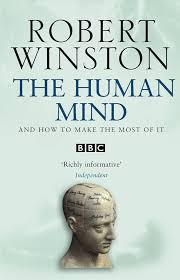The Legacy of Robert Winston: Scientist and Broadcaster

Introduction
Sir Robert Winston is a name synonymous with science communication in the UK. Renowned for his contributions to reproductive medicine and his engaging public outreach, Winston’s work has influenced countless individuals over decades. As a prominent figure in both scientific research and television broadcasting, his ability to translate complex scientific concepts into accessible language has made him a crucial advocate for science education.
Background and Achievements
Born on July 15, 1940, Robert Winston trained as a physician before entering the field of reproductive science. His research has significantly advanced the understanding of human fertility and assisted reproductive technologies, notably as a pioneer in the development of in-vitro fertilisation (IVF). As a professor of fertility studies at Imperial College London, he has trained generations of medical professionals.
In addition to his medical career, Winston has achieved considerable success in television. He gained fame with his series such as The Human Body and Child of Our Time, which explored the complexities of human development and behaviour. His engaging presentation style has made science appealing to a broader audience, emphasising its relevance in everyday life.
Current Contributions
Today, Robert Winston continues to be an influential voice in discussions surrounding education and public health. Recently, he has advocated for greater investment in science education, emphasising the need for schools to integrate scientific literacy into their curricula. His efforts seek to inspire young people to pursue careers in STEM (science, technology, engineering, and maths) fields amidst a growing skills shortage in these areas.
Furthermore, Winston remains actively involved in public discourse regarding ethical issues in reproductive technology and genetic research. As advances in biotechnology accelerate, discussions about the moral implications of such innovations become increasingly vital. Winston’s balanced perspective contributes to a more informed debate on these important topics.
Conclusion
The contributions of Robert Winston to science and media continue to resonate today. His commitment to science communication and education highlights the critical need for accessible information in an increasingly complex world. As discussions about the future of reproductive technologies and ethical considerations in science advance, Winston will likely remain a pivotal figure in shaping public understanding and policy. For those interested in the intersection of science, education, and media, Robert Winston’s work serves as a remarkable example of how one individual can impact society profoundly.









